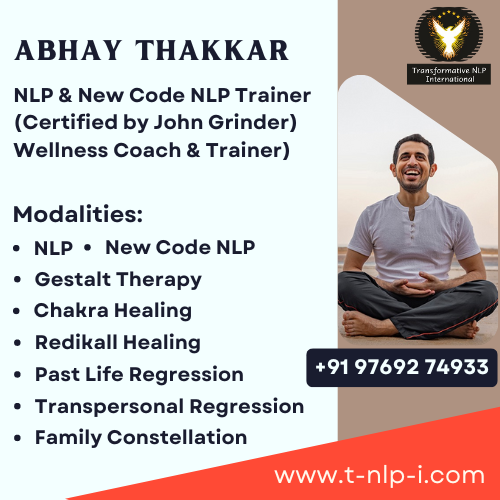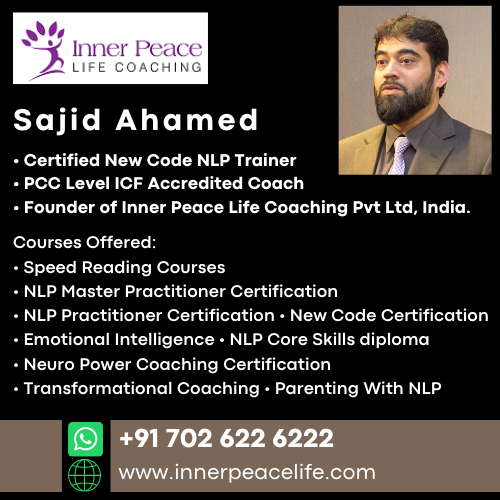Alternative Therapies
- Alternative Medicine
- Access Bars
- Access Body Processes
- Access Consciousness
- Access Energetic Faclift
- Acupressure
- Acupuncture
- Akashic Records
- Angel Healing
- Aromatherapy
- Aura Reading
- Ayurveda
- Bach Flower Remedies
- Blueprint Numerology
- Breathwork
- Cosmetic Acupuncture
- Cosmic Connection
- Crystal Healing
- Cupping Therapy
- Emotional Freedom Technique (EFT)
- Energy Healing
- Energy Medicine
- Ergonomics
- Family Constellation
- Fengshui
- Heal Your Life
- Face Reading
- Graphology
- Holistic Solutions
- Holy Fire Reiki
- Jesus Reiki
- Jikiden Reiki
- Jin Shin Jyutsu
- Karuna Reiki
- Karmic Healing
- Homeopathy
- Ho'oponopono
- Hoodoo
- Humkara with Haleem
- Hypnotherapy
- Inner Child Therapy
- Lama Fera
- Lenormand Cards
- Light Language Healing
- Law of Attraction
- Manual Therapy
- Meditation
- Twin Hearts Meditation
- Melchizedek Method
- Merlin Trinity Healing
- Merkaba Healing
- Money Reiki
- Motivational Counseling
- Mudra Healing
- Naturopathy
- Neuro Linguistic Programming (NLP)
- Numerology
- Oracle Cards
- Panchakarma (Ayurveda)
- Panchkarma Holistic Healing - Mind Control
- Past Life Regression
- Physiotherapy
- Pranic Healing
- Pythagorean Numerology
- Pyramids
- Reiki
- Rudraksh
- Runes
- Soul Plan Reading
- Sound Healing
- Star Magic Healing
- Space Clearing
- Silva Mind Control Method
- Sujok therapy
- Tarot
- Tera MaiTM Seichem
- Tea Leaf Reading
- Theta Healing
- Unani Medicine
- Yoga
- Wicca
- Womb Healing
Diseases & Conditions
- Acne & Pimples
- Allergies
- Arthritis
- Asthma
- Behavioural Disorders
- Cancer
- Dandruff
- Diabetes
- Emotional Problems
- Gallstones
- Gastritis
- Hairloss
- Heart Diseases
- Hormonal Problems
- Hypertension
- Immune Disorders
- Infections
- Infertility
- Jaundice
- Kidney Disorders
- Liver Disorders
- Menstrual Disorders
- Migraine
- Neck & Back Pain
- Obesity
- Osteoporosis
- Peptic Ulcer
- Prevention
- Prostate Problems
- Psoriasis
- Sexual Dysfunctions
- Sinusitis
- Sleep Disorders
- Skin Diseases
- Stress
- Thyroid Disorders
- Ulcerative Colitis
- Urinary Infections
General Wellness
Emotional Intelligence (EQ) Training in Pune
Abhay Thakkar

Abhay Thakkar, is India's only NLP Trainer to provide both - NLP as well as New Code NLP Trainings certified by co-creator of NLP - John Grinder as well as co-developers of New Code NLP - Carmen Bostic St Clair and Michael Carroll...

Sajid Ahamed

Sajid Ahamed is a "Certified trainer of NLP" and Founder of Inner Peace Life Coaching Pvt Ltd, India. He organizes Grinder approved training in India and the Middle East. He is a firm believer in high performance.

Emotional Intelligence (EQ) Training

Five Key Skills for Raising Emotional Intelligence
When it comes to happiness and success in life, emotional intelligence (EQ) matters just as much as intellectual ability (IQ). Emotional intelligence helps you build stronger relationships, succeed at work, and achieve your career and personal goals. Learn more about why emotional intelligence is so important and how you can boost your own EQ by mastering five core skills.
What is emotional intelligence?
Emotional intelligence (EQ) is the ability to identify, use, understand, and manage emotions in positive ways to relieve stress, communicate effectively, empathize with others, overcome challenges, and defuse conflict. Emotional intelligence impacts many different aspects of your daily life, such as the way you behave and the way you interact with others.
If you have a high emotional intelligence you are able to recognize your own emotional state and the emotional states of others and engage with people in a way that draws them to you. You can use this understanding of emotions to relate better to other people, form healthier relationships, achieve greater success at work, and lead a more fulfilling life.
Emotional intelligence consists of four attributes:
- Self-awareness - You recognize your own emotions and how they affect your thoughts and behavior, know your strengths and weaknesses, and have self-confidence.
- Self-management - You're able to control impulsive feelings and behaviors, manage your emotions in healthy ways, take initiative, follow through on commitments, and adapt to changing circumstances.
- Social awareness - You can understand the emotions, needs, and concerns of other people, pick up on emotional cues, feel comfortable socially, and recognize the power dynamics in a group or organization.
- Relationship management - You know how to develop and maintain good relationships, communicate clearly, inspire and influence others, work well in a team, and manage conflict.
Why is emotional intelligence (EQ) so important?
As we know, it's not the smartest people that are the most successful or the most fulfilled in life. You probably know people who are academically brilliant and yet are socially inept and unsuccessful at work or in their personal relationships. Intellectual intelligence or IQ isn't enough on its own to be successful in life. IQ can help you get into college but it's EQ that will help you manage the stress and emotions of sitting your final exams.
Emotional intelligence affects:
- Your performance at work. Emotional intelligence can help you navigate the social complexities of the workplace, lead and motivate others, and excel in your career. In fact, when it comes to gauging job candidates, many companies now view emotional intelligence as being as important as technical ability and require EQ testing before hiring.
- Your physical health. If you're unable to manage your stress levels, it can lead to serious health problems. Uncontrolled stress can raise blood pressure, suppress the immune system, increase the risk of heart attack and stroke, contribute to infertility, and speed up the aging process. The first step to improving emotional intelligence is to learn how to relieve stress.
- Your mental health. Uncontrolled stress can also impact your mental health, making you vulnerable to anxiety and depression. If you are unable to understand and manage your emotions, you'll also be open to mood swings, while an inability to form strong relationships can leave you feeling lonely and isolated.
- Your relationships. By understanding your emotions and how to control them, you're better able to express how you feel and understand how others are feeling. This allows you to communicate more effectively and forge stronger relationships, both at work and in your personal life.
How to raise your emotional intelligence
All information to the brain comes through our senses and when this information is overwhelmingly stressful or emotional, instinct will take over and our ability to act will be limited to the flight, fight, or freeze response. Therefore, to have access to the wide range of choices and make good decisions, we need to be able to bring our emotions into balance at will.
Memory is also strongly linked to emotion. By learning to use the emotional part of your brain as well as the rational, you'll not only expand your range of choices when it comes to responding to a new event, you'll also factor emotional memory into your decision-making. This will help prevent you from continually repeating earlier mistakes.
To improve your emotional intelligence-and your decision-making abilities-you need to understand and control the emotional side of your brain. This is done by developing five key skills. By mastering the first two skills, you'll find skills 3, 4, and 5 much easier to learn.
Developing emotional intelligence through five key skills:Emotional intelligence consists of five key skills, each building on the last:
- Emotional intelligence (EQ) skill 1: The ability to quickly reduce stress.
- Emotional intelligence (EQ) skill 2: The ability to recognize and manage your emotions.
- Emotional intelligence (EQ) skill 3: The ability to connect with others using nonverbal communication.
- Emotional intelligence (EQ) skill 4: The ability to use humor and play to deal with challenges.
- Emotional intelligence (EQ) skill 5: The ability to resolve conflicts positively and with confidence.
How to learn the five key skills of emotional intelligence
The five skills of emotional intelligence can be learned by anyone, at any time. But there is a difference between learning about emotional intelligence and applying that knowledge to your life. Just because you know you should do something doesn't mean you will-especially when you become overwhelmed by stress, which can hijack your best intentions.
In order to permanently change behavior in ways that stand up under pressure, you need to learn how to take advantage of the powerful emotional parts of the brain that remain active and accessible even in times of stress. This means that you can't simply read about emotional intelligence in order to master it. You have to experience and practice the skills in your everyday life.
Emotional intelligence (EQ) skill 1: Rapidly reduce stress
High levels of stress can overwhelm the mind and body, getting in the way of your ability to accurately 'read' a situation, hear what someone else is saying, be aware of your own feelings and needs, and communicate clearly.
Being able to quickly calm yourself down and relieve stress helps you stay balanced, focused, and in control-no matter what challenges you face or how stressful a situation becomes.
Stress busting: functioning well in the heat of the moment
Develop your stress busting skills by working through the following three steps:
- Realize when you're stressed - The first step to reducing stress is recognizing what stress feels like. How does your body feel when you're stressed? Are your muscles or stomach tight or sore? Are your hands clenched? Is your breath shallow? Being aware of your physical response to stress will help regulate tension when it occurs.
- Identify your stress response - Everyone reacts differently to stress. If you tend to become angry or agitated under stress, you will respond best to stress relief activities that quiet you down. If you tend to become depressed or withdrawn, you will respond best to stress relief activities that are stimulating. If you tend to freeze-speeding up in some ways while slowing down in others-you need stress relief activities that provide both comfort and stimulation.
- Discover the stress-busting techniques that work for you - The best way to reduce stress quickly is by engaging one or more of your senses: sight, sound, smell, taste, and touch. Each person responds differently to sensory input, so you need to find things that are soothing and/or energizing to you. For example, if you're a visual person you can relieve stress by surrounding yourself with uplifting images. If you respond more to sound, you may find a wind chime, a favorite piece of music, or the sound of a water fountain helps to quickly reduce your stress levels.
Emotional intelligence (EQ) skill 2: Emotional awareness
Being able to connect to your emotions-having a moment-to-moment awareness of your emotions and how they influence your thoughts and actions-is the key to understanding yourself and others.
Many people are disconnected from their emotions-especially strong core emotions such as anger, sadness, fear, and joy. This may be the result of negative childhood experiences that taught you to try to shut off your feelings. But although we can distort, deny, or numb our feelings, we can't eliminate them. They're still there, whether we're aware of them or not. Unfortunately, without emotional awareness, we are unable to fully understand our own motivations and needs, or to communicate effectively with others.
What kind of a relationship do you have with your emotions?
- Do you experience feelings that flow, encountering one emotion after another as your experiences change from moment to moment?
- Are your emotions accompanied by physical sensations that you experience in places like your stomach or chest?
- Do you experience discrete feelings and emotions, such as anger, sadness, fear, joy, each of which is evident in subtle facial expressions?
- Can you experience intense feelings that are strong enough to capture both your attention and that of others?
- Do you pay attention to your emotions? Do they factor into your decision making?
If any of these experiences are unfamiliar, your emotions may be turned down or turned off. In order to be emotionally healthy and emotionally intelligent, you must reconnect to your core emotions, accept them, and become comfortable with them. Developing emotional awareness
Emotional awareness can be learned at any time of life. If you haven't learned how to manage stress, it's important to do so first. When you can manage stress, you'll feel more comfortable reconnecting to strong or unpleasant emotions and changing the way you experience and respond to your feelings.
Emotional intelligence skill (EQ) 3: Nonverbal communication
Being a good communicator requires more than just verbal skills. Often, what you say is less important than how you say it or the other nonverbal signals you send out-the gestures you make, the way you sit, how fast or how loud you talk, how close you stand, how much eye contact you make. In order to hold the attention of others and build connection and trust, you need to be aware of and in control of this body language. You also need to be able to accurately read and respond to the nonverbal cues that other people send you.
These messages don't stop when someone stops speaking. Even when you're silent, you're still communicating nonverbally. Think about what you are transmitting as well, and if what you say matches what you feel. If you insist "I'm fine", while clenching your teeth and looking away, your body is clearly signaling the opposite. Your nonverbal messages can produce a sense of interest, trust, excitement, and desire for connection-or they can generate fear, confusion, distrust, and disinterest.
Tips for improving nonverbal communication
Successful nonverbal communication depends on your ability to manage stress, recognize your own emotions, and understand the signals you're sending and receiving. When communicating:
- Focus on the other person. If you are planning what you're going to say next, daydreaming, or thinking about something else, you are almost certain to miss nonverbal cues and other subtleties in the conversation.
- Make eye contact. Eye contact can communicate interest, maintain the flow of a conversation, and help gauge the other person's response.
- Pay attention to nonverbal cues you're sending and receiving, such as facial expression, tone of voice, posture and gestures, touch, and the timing and pace of the conversation.
Emotional intelligence (EQ) skill 4: Use humor and play to deal with challenges
Humor, laughter, and play are natural antidotes to life's difficulties. They lighten your burdens and help you keep things in perspective. A good hearty laugh reduces stress, elevates mood, and brings your nervous system back into balance.Playful communication broadens your emotional intelligence and helps you:
- Take hardships in stride. By allowing you to view your frustrations and disappointments from new perspectives, laughter and play enable you to survive annoyances, hard times, and setbacks.
- Smooth over differences. Using gentle humor often helps you say things that might be otherwise difficult to express without creating a flap.
- Simultaneously relax and energize yourself. Playful communication relieves fatigue and relaxes your body, which allows you to recharge and accomplish more.
- Become more creative. When you loosen up, you free yourself of rigid ways of thinking and being, allowing you to get creative and see things in new ways.
How to develop playful communication:
It's never too late to develop and embrace your playful, humorous side.
- Try setting aside regular, quality playtime. The more you joke, play, and laugh-the easier it becomes.
- Find enjoyable activities that loosen you up and help you embrace your playful nature.
- Practice by playing with animals, babies, young children, and outgoing people who appreciate playful banter.
Emotional intelligence (EQ) skill 5: Resolve conflict positively
Conflict and disagreements are inevitable in relationships. Two people can't possibly have the same needs, opinions, and expectations at all times. However, that needn't be a bad thing. Resolving conflict in healthy, constructive ways can strengthen trust between people. When conflict isn't perceived as threatening or punishing, it fosters freedom, creativity, and safety in relationships.
The ability to manage conflicts in a positive, trust-building way is supported by the previous four skills of emotional intelligence. Once you know how to manage stress, stay emotionally present and aware, communicate nonverbally, and use humor and play, you'll be better equipped to handle emotionally-charged situations and catch and defuse many issues before they escalate.
Tips for resolving conflict in a trust-building way:
- Stay focused in the present. When you are not holding on to old hurts and resentments, you can recognize the reality of a current situation and view it as a new opportunity for resolving old feelings about conflicts.
- Choose your arguments. Arguments take time and energy, especially if you want to resolve them in a positive way. Consider what is worth arguing about and what is not.
- Forgive. Other people's hurtful behavior is in the past. To resolve conflict, you need to give up the urge to punish or seek revenge.
- End conflicts that can't be resolved. It takes two people to keep an argument going. You can choose to disengage from a conflict, even if you still disagree






